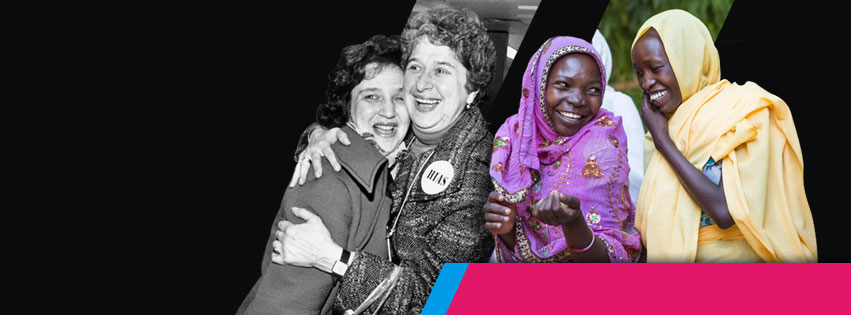
Safe Spaces for LGBTI Refugees in Nairobi
Click here to see the original post in Voice.Global site-
Project Duration
-
-
Lead organisation
HIAS Refugee Trust of Kenya
-
HIAS is a Jewish charitable, not for profit organisation originally founded in response to the late 19th and 20th century exodus of Jewish emigrants from Imperial Russia. HIAS protects most at risk refugees whose lives are in danger for being who they are. HIAS helps refugees rebuild their lives in safety, and advocates for the protection of refugees, ensuring that all displaced people are treated with dignity. HIAS began its Africa operations in 2002, launching the HIAS Refugee Trust of Kenya (HRTK). HRTK (also referred to HIAS Kenya) has its head office in Mimosa court, and operates in the three sites of Kayole, Kawangware and Eastleigh in Nairobi. These are poor neighbourhoods where the majority of refugee populations in Nairobi reside. Urban refugees in Nairobi include the Somali population, the largest, followed by Ethiopians, Congolese, Sudanese, Ugandan and Rwandese, while smaller refugee groups residing in Nairobi include those from Eritrea and Burundi. HIAS serves the most at risk urban refugees including those who identify as LGBTI persons living with disability, victims of torture, single heads of households, the elderly, those with chronic illnesses, youth, unaccompanied and separated children and women most at risk.
-
Organisation
HIAS is a Jewish charitable, not for profit organisation originally founded in response to the late 19th and 20th century exodus of Jewish emigrants from Imperial Russia. HIAS protects most at risk refugees whose lives are in danger for being who they are. HIAS helps refugees rebuild their lives in safety, and advocates for the protection of refugees, ensuring that all displaced people are treated with dignity. HIAS began its Africa operations in 2002, launching the HIAS Refugee Trust of Kenya (HRTK). HRTK (also referred to HIAS Kenya) has its head office in Mimosa court, and operates in the three sites of Kayole, Kawangware and Eastleigh in Nairobi. These are poor neighbourhoods where the majority of refugee populations in Nairobi reside. Urban refugees in Nairobi include the Somali population, the largest, followed by Ethiopians, Congolese, Sudanese, Ugandan and Rwandese, while smaller refugee groups residing in Nairobi include those from Eritrea and Burundi. HIAS serves the most at risk urban refugees including those who identify as LGBTI persons living with disability, victims of torture, single heads of households, the elderly, those with chronic illnesses, youth, unaccompanied and separated children and women most at risk.
-
Project
The Safe Spaces for LGBTI Refugees in Nairobi project works with the most vulnerable refugees and their host communities, including survivors of SGBV, survivors of torture, LGBTI persons, single-headed households and Persons living with Disabilities through the provision of mental health, legal and livelihood support. Together with Creatives Garage (CG) a multi-disciplinary collective space for artists and budding artists - to network, share ideas, collaborate, learn, gain market accessibility and push boundaries, and Community Empowerment Self Support Initiative (CESSI), a refugee led community of LGBTI refugees who have come together and started several business enterprises in Nairobi as means of earning a livelihood, HIAS aims to create an inclusive and safe environment for LGBTI refugees and their host communities to live and work.
This is achieved through the implementation of three mutually reinforcing and supportive objectives that:
• Increases the power and voice of the LGBTI community to advocate for their own protection
• Increases the ability of LGBTI to earn an income in a safe and sustainable way, and
• Builds the capacity of service providers to address the basic needs and protection concerns of Kenyan and refugee LGBTI people, ensuring their needs are met through confidential, appropriate and quality assistance.
-
-
The Safe Spaces for LGBTI Refugees in Nairobi project works with the most vulnerable refugees and their host communities, including survivors of SGBV, survivors of torture, LGBTI persons, single-headed households and Persons living with Disabilities through the provision of mental health, legal and livelihood support. Together with Creatives Garage (CG) a multi-disciplinary collective space for artists and budding artists - to network, share ideas, collaborate, learn, gain market accessibility and push boundaries, and Community Empowerment Self Support Initiative (CESSI), a refugee led community of LGBTI refugees who have come together and started several business enterprises in Nairobi as means of earning a livelihood, HIAS aims to create an inclusive and safe environment for LGBTI refugees and their host communities to live and work.
This is achieved through the implementation of three mutually reinforcing and supportive objectives that:
• Increases the power and voice of the LGBTI community to advocate for their own protection
• Increases the ability of LGBTI to earn an income in a safe and sustainable way, and
• Builds the capacity of service providers to address the basic needs and protection concerns of Kenyan and refugee LGBTI people, ensuring their needs are met through confidential, appropriate and quality assistance.
